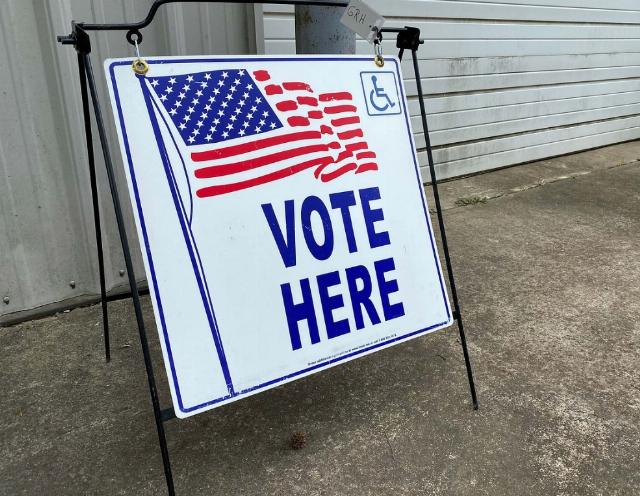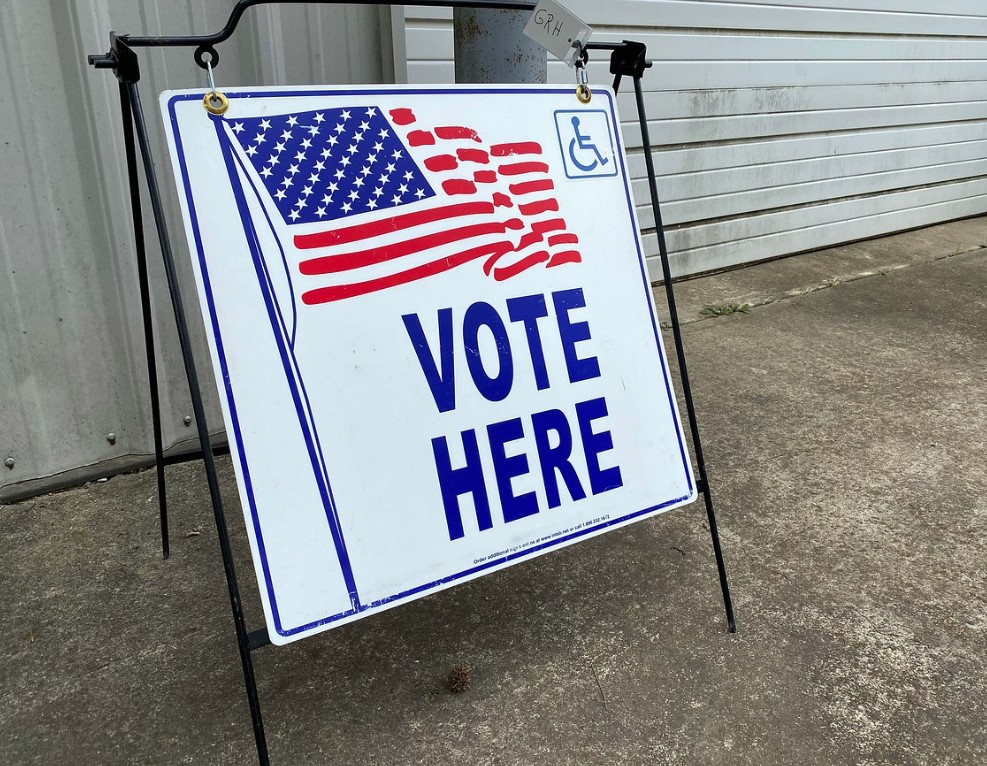

Photo Credit: Image: cagdesign via Pixabay, Pixabay License.
cagdesign
The Republican defense of the Electoral College has never been based on conservative principles. Indeed, the Electoral College is anathema to conservatism.With the September 24 CNN/SSRS survey of likely voters showing Donald Trump and Kamala Harris in a dead heat nationwide, a popular vote win and an Electoral College loss has become a real possibility for Republicans for the first time since 2004. In that election, an additional 118,602 votes for John Kerry in Ohio would have put the Massachusetts Democrat in the White House, even though he lost the popular vote to President George W. Bush by more than 3 million votes. This year, all the Democrats have to do is hold Wisconsin, Michigan, and Pennsylvania to retain the White House, even if Trump retakes Georgia and Arizona — states he won in 2016 — and adds Nevada to his total. Will Republicans continue to defend the Electoral College if it thwarts their presidential hopes while failing to reflect the popular will? I doubt it.
The Republican defense of the Electoral College has never been based on conservative principles. Indeed, the Electoral College is anathema to conservatism.
The heart of conservatism is the protection of individual rights. The Electoral College is not conservative, because it fails to protect the rights of individuals participating in presidential elections. Instead, it obliterates the votes of individuals in favor of a bloc-voting scheme that violates the principle of one person, one vote. Dividing the number of voters in a state by the number of electors they secured with their votes shows that in 2020, the vote of a person in Wyoming counted 3.45 times more toward the election of the president than did the vote of a person in California. Similar discrepancies occur across the electoral map.
The Republican defense of the Electoral College is rooted in partisanship, not conservatism. Republicans have come to think it provides the only path to the White House. Its supporters defend it with specious arguments connected to neither facts nor logic. Let us examine a couple of these fallacies.
The United States is a constitutional republic, not a democracy. The statement is true, but it would still be true if the Electoral College were abolished tomorrow. The United States is a constitutional republic because it is governed by representatives of the people rather than by initiative, referendum, or plebiscite — the instruments of direct democracy. The Electoral College is a mechanism for choosing the president, nothing more. It has nothing to do with preserving the republican form of government.
The Electoral College protects the interests of small states. The Electoral College gives small states disproportionate power to choose a president, but that is not the same thing as protecting state interests. To protect state interests, that electoral power would have to manifest itself in some way before or after the election. It does not. The U.S. Senate, by contrast, does protect the interests of small states, because it puts them on an equal footing with large states for the shaping of policy. The Senate, not the Electoral College, is the guarantor of federalism.
The Electoral College prevents the same few states (or cities, or counties) from choosing the president every single time. The Electoral College does not solve this. Every president since Rutherford B. Hayes in 1876 has carried at least seven of the eleven largest states (in their era). The large states have always dominated presidential elections. If anything, choosing the president by popular vote would decrease the influence of the largest states. Twelve of the thirty largest metropolitan statistical areas lie outside the most populous states. Fourteen of the thirty are located in red states. Campaigning where the votes are would bring the candidates into far more states than they visit now, as they compete for Electoral College votes in a handful of “battleground” states.
Campaigning nationwide would likely increase conservative turnout. Practical and realistic, knowing that their votes will not count under the Electoral College system, millions of conservatives, especially in blue states, do not bother to vote. Idealistic and rebellious, liberals turn out to cast their votes wherever they are. When every vote actually counts, the number of conservative votes will rise disproportionately compared to the number of liberal votes. Polling on the issues consistently shows the United States is a center-right country. A meaningful popular vote will reflect that. Unleashing a vibrant conservative majority would more than take the sting out of uniting with prominent leftist groups currently agitating to abolish the Electoral College.
Many Electoral College supporters lazily describe election by popular vote as “mob rule.” What they fail to mention is that every electoral office in the United States, except for president and vice president, is chosen by popular vote. If preventing “mob rule” is the ideal, do we need to create mini–electoral colleges in each state to prevent the cities from “dictating” to the rural areas?
Alabama actually tried this in 1964, but it was not to protect the rights of the rural residents. It was done to frustrate the rights of black voters in Mobile and other cities after the Voting Rights Act was signed into law. Alabama legislators redrew the legislative map as a grid of equal-sized districts, assigning one state representative to each district regardless of its population. Urban Alabama voters sued, claiming that the redistricting plan violated their Fourteenth Amendment rights to equal protection under the law. The case, Reynolds v. Sims (1964), went all the way to the Supreme Court. A unanimous Court struck down the redistricting plan with words worth keeping in mind when debating the Electoral College: “Diluting the weight of votes because of place of residence impairs basic constitutional rights under the Fourteenth Amendment just as much as invidious discriminations based upon factors such as race or economic status. Weighting the votes of citizens differently, by any method or means, merely because of where they happen to reside, hardly seems justifiable.”
For some, abolishing the Electoral College might seem like a repudiation of the Founders’ political genius. It is not. It is a recognition of their genius as expressed in the Declaration of Independence — namely, that all people are “created equal” and that governments derive “their just powers from consent of the governed.” A system that weights the consent of some people more than the consent of others, as the Electoral College does, is in conflict with these basic principles.
In addition, the Electoral College of today is not the Electoral College of the Founders. It has already changed radically, from electors being chosen by legislatures to electors being chosen by voters. Changing the presidential electoral process would not undermine respect for the Founders or the Constitution. In fact, amending the Constitution would further prove the foresight of the Founders, who provided the mechanism for changing the Constitution as needed.
Conservatives are not reactionaries. They should not oppose change for opposition’s sake. They should be guided by their principles. The Electoral College is not the protector of a constitutional republic. It is not the guarantor of federalism. It does not prevent large states from having an outsized say in presidential elections. It does, however, violate the principles of one person, one vote and equal protection under the law. Republicans should join with Democrats to abolish it. It is the conservative thing to do.
Bradley Steffens is the author of two novels and seventy-two nonfiction books for young adults.
<img alt="
Image: cagdesign via Pixabay, Pixabay License.
” captext=”cagdesign” src=”https://conservativenewsbriefing.com/wp-content/uploads/2024/10/a-conservative-case-against-the-electoral-college.jpg”>
Image: cagdesign via Pixabay, Pixabay License.





